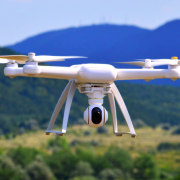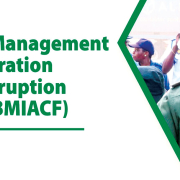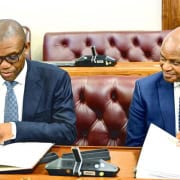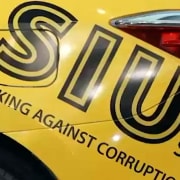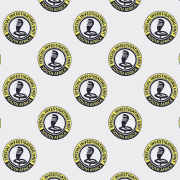|
Getting your Trinity Audio player ready...
|
Image: Department of Justice
On 14 July 2022 the Special Investigating Unit (SIU) marked its silver jubilee with a new logo, a comprehensive retrospective look at its first quarter century, and a celebratory event. Arising out of the findings of the 1995 Heath Commission into fraud, corruption, and maladministration, the establishment of the SIU was driven by former president Nelson Mandela.
“The SIU was internationally unique in terms of its legislative powers and distinctive mandate,” said retired judge Willem Heath, who assisted the Department of Justice and the office of the State Law Advisor in drafting the Special Investigating Unit and Special Tribunals Act (SIU Act), and became the unit’s inaugural head. “No such statutory body or organisation existed even in other countries.”
The SIU is able to subpoena witnesses, bank statements, and cellphone records. It can search, seize evidence, and interrogate witnesses under oath, and litigate on behalf of the state. However, it does not initiate its own investigations – it acts on allegations received through its whistle-blower hotline or from whistle-blowers directly, from state institutions, or from organisations referring cases to it.
Each case is considered by the SIU Case Assessment Committee which, if the case falls within the SIU’s mandate according to the SIU Act, will prepare a motivation for a presidential proclamation. This is submitted to the president and only once the proclamation has been issued can the SIU begin its planning and investigative work.
A hiatus in 2000-2001, owing to a Constitutional Court ruling that it was unconstitutional for a judge to head the SIU and thereby breach the separation of powers principle, caused a period of uncertainty. Heath stepped down as SIU head in June that year, and the unit was non-operational until legislative amendments and a new proclamation allowed it to resume its work, with Willie Hofmeyr at the helm.
Billions of rands recovered
The year after the passing in 1996 of the SIU Act, Mandela signed Proclamation R24 to create the body and for the past 25 years, the organisation has recovered significant amounts of public money and set aside numerous unlawful contracts.
“Between 2013 and 2021, the SIU has recovered public money and assets amounting to R2.6-billion, set aside contracts to the value of R18-billion and referred matters worth R81-billion for civil litigation in the High Court and the Special Tribunal for civil litigation,” said justice minister Ronald Lamola, delivering the keynote speech at the anniversary event.
“The SIU must continue to do its job without any fear, favour or prejudice.”
Corruption Watch enjoys a productive working relationship with the SIU. We have partnered with it on several webinars, and sit with it on the Infrastructure Built Anti-Corruption Forum and the Health Sector Anti-Corruption Forum. SIU head Andy Mothibi was a guest and panelist at our recent Cape Town conference on beneficial ownership transparency.
Special Tribunal
“Over the years, the SIU has undergone many changes, and has had numerous heads, each with their own personality and methodology,” said the unit’s longest-serving employee, Martin Steenekamp.
“It has grown from a small staff complement of 20 individuals to the over 500-member organisation it is today, and has significantly increased awareness among both public servants and the public at large of the serious threat and impact that maladministration and the theft of state monies has on the economy.”
The Special Tribunal came into operation in 2019 with a status similar to that of a high court. The tribunal has helped the SIU to expedite recovery of state money and assets lost negligently or corruptly, by adjudicating on matters that the SIU institutes for civil litigation relief after concluding an investigation. This means the SIU no longer has to stand in line at high courts with other litigants, said the organisation, which may cause delays and make recovery of stolen money more difficult as culprits have more time to hide or dissipate the money and assets.
The SIU’s five operational streams – case registration management, case assessment, market data analytics, prevention advisory awareness, and portfolio management – and its investigation and litigation powers give it a “competitive advantage” over other anti-corruption agencies.
No national or provincial department, municipality or state-owned entity is exempt from SIU investigations. Some of its most prominent investigations include medical aid fraud and poor service delivery in the Department of Correctional Services, contract irregularities at Eskom, and its ongoing investigation into dodgy PPE procurement and irregularities in the health department. The SIU has also investigated licence fraud at national testing centres, corruption and maladministration in the South African Social Security Agency, and irregular contracts in Transnet, among many others.
“The culture of impunity and corruption … must cease to occur in the public service,” said Lamola. “We have been robbed of capacity to respond to other pressing matters in the country due to monies lost. Our people can also not adequately shape their future, they are deprived of water, access roads, health care, and other basic necessities that government committed to roll out as the money for such services has been looted.”
South Africa will never reach its full potential as a country as long as corruption continues to manifest, said Lamola.

